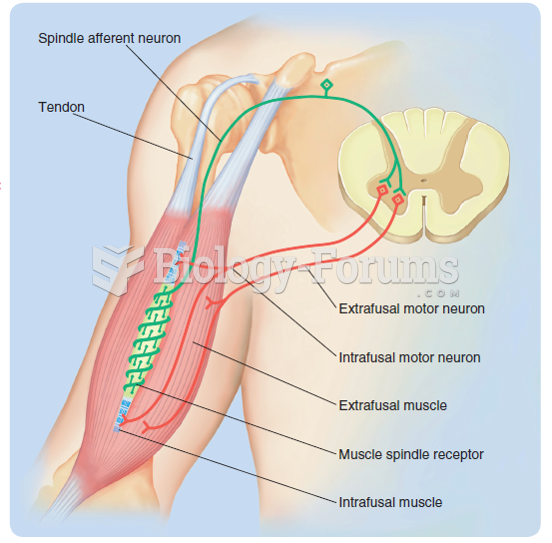|
|
|
The average human gut is home to perhaps 500 to 1,000 different species of bacteria.
Hypertension is a silent killer because it is deadly and has no significant early symptoms. The danger from hypertension is the extra load on the heart, which can lead to hypertensive heart disease and kidney damage. This occurs without any major symptoms until the high blood pressure becomes extreme. Regular blood pressure checks are an important method of catching hypertension before it can kill you.
Throughout history, plants containing cardiac steroids have been used as heart drugs and as poisons (e.g., in arrows used in combat), emetics, and diuretics.
It is difficult to obtain enough calcium without consuming milk or other dairy foods.
The human body produces and destroys 15 million blood cells every second.
 Apply deep circular effleurage to the buttocks muscles as a warming technique. Place one hand on top ...
Apply deep circular effleurage to the buttocks muscles as a warming technique. Place one hand on top ...
 Apply passive touch over abdomen to finish. Slow the circle stroke you performed in Step 14, and let ...
Apply passive touch over abdomen to finish. Slow the circle stroke you performed in Step 14, and let ...





